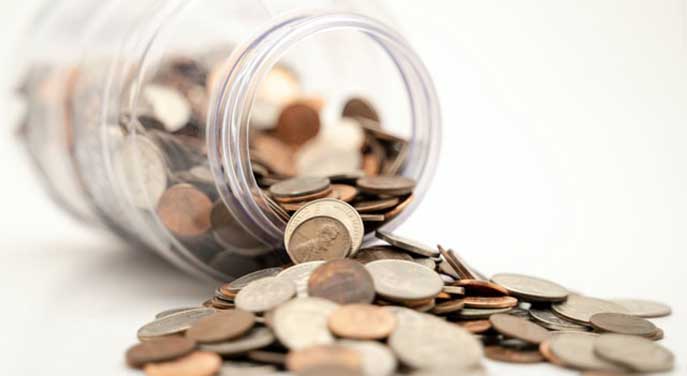 When I audited an economics class in the Rice University School of Business, the lecturer compared inflation to slow-growing cancer and deflation to a heart attack. The implication was that deflation – declining prices – is fatal and worse than inflation.
When I audited an economics class in the Rice University School of Business, the lecturer compared inflation to slow-growing cancer and deflation to a heart attack. The implication was that deflation – declining prices – is fatal and worse than inflation.
This Keynesian fearmongering, which empowers central banks to water down currencies, is common but hollow.
Switzerland, one of the world’s most sophisticated and economically prudent nations, stands as a counter example. That country has affirmed George Selgin’s contention in Less Than Zero, first published in 1997, and reaffirms that declining prices are a healthy and natural partner to growing productivity.
The profession of economics, as documented by Econ Journal Watch, suffers from deleterious biases, specifically “government cheerleading.” It’s a small world and that very Rice lecturer, Michael Brandl, turned up in an EJW paper for his textbook on Money, Banking, Financial Markets & Institutions. His, along with five other major money and banking textbooks reviewed, exhibited a “narrative [that] relies on a biased selection of facts. The cumulative effect of these oversights is an unbalanced textbook narrative that could potentially mislead student readers.”
We should not be surprised that central-bank research and state-subsidized institutions push the false notion that there’s a tradeoff between unemployment and inflation (the Phillips curve), just as they rarely call for austerity and consequent deflation.
 Since inflation largely stems from expansionary monetary and fiscal policy, recipients of cheap credit and deficit spending welcome it, as do central banks for mission creep. On the other hand, inflation is a tax on lenders, cash holders and fixed-income earners.
Since inflation largely stems from expansionary monetary and fiscal policy, recipients of cheap credit and deficit spending welcome it, as do central banks for mission creep. On the other hand, inflation is a tax on lenders, cash holders and fixed-income earners.
The Bank of Canada, for example, explicitly aims for two per cent annual inflation, as though it were a blessing. Bank of Canada officials, sensing their obsolescence, fear competition from alternative private currencies that seek to avoid inflation entirely.
Survey data from the Swiss National Bank released in June reveals what happens when a nation experiences zero inflation and even sustained periods of deflation. In the last decade, inflation in Switzerland only briefly cracked one per cent. For all of 2012, 2015 and 2016, inflation was negative.
Has Switzerland had a heart attack?
Far from it. The Swiss are distinct in their confidence in their currency and economy. The Swiss unemployment rate has remained less than half of Canada’s during the past decade. It sits at 2.8 per cent versus Canada’s 7.8 per cent.
Even during the COVID-19 era, when there has been a migration to online and contactless payments, cash remains the most popular payment method with Swiss residents.
Perish the thought: the Swiss even have enough confidence in the franc to hold it as a store of value. As reported by Reuters, 70 per cent of the population hold francs at home or in a safety deposit box as a form of insurance.
The past decade has seen a concerted effort from various governmental institutions, alongside payment processors, to snuff out cash purchases. The European Central Bank in 2016, for example, ended production of 500 euro notes. Since 2012, the United Nations has also led the Better Than Cash Alliance, sponsored by Visa and Mastercard, and joined by 32 governments.
This taxpayer-funded coalition lobbies to cajole and coerce people into digital payments, where they can more easily be taxed, monitored, profited from and subjected to negative interest rates. The coalition claims cashless economies will restrain terrorism and tax evasion and foster “women’s economic participation and financial inclusion.”
However, the coalition is less than enthused by the rise of peer-to-peer cryptocurrencies. As Lawrence White of George Mason University notes, “That is the test of whether they are sincere about electronic [transactions] being the thing they are promoting. No, it’s electronic that they can trace and tax. The same governments that are restricting the use of cash are restricting the use of bitcoin.”
Jerry Brito of the Coin Center has warned that “a cashless society is a surveillance economy. … [The] death of cash means the birth of perfect financial control.” This is the reason there is a need for private cryptocurrencies, such as monero, that at least mimic the benefits and privacy of cash.
Meanwhile, the Swiss National Bank serves its constituents and still releases 1,000 franc notes, worth almost C$1,400. The fact that the Swiss still use cash as their chief medium of exchange and even as a store of value is a symbol of good governance, including respect for civil liberties, purchasing-power resilience and fiscal maturity.
The Swiss have near full employment and have no need for inflation chicanery.
Fergus Hodgson is a research associate at the Frontier Centre for Public Policy.
Fergus is a Troy Media Thought Leader. For interview requests, click here.
The views, opinions and positions expressed by columnists and contributors are the authors’ alone. They do not inherently or expressly reflect the views, opinions and/or positions of our publication.
© Troy Media
Troy Media is an editorial content provider to media outlets and its own hosted community news outlets across Canada.

